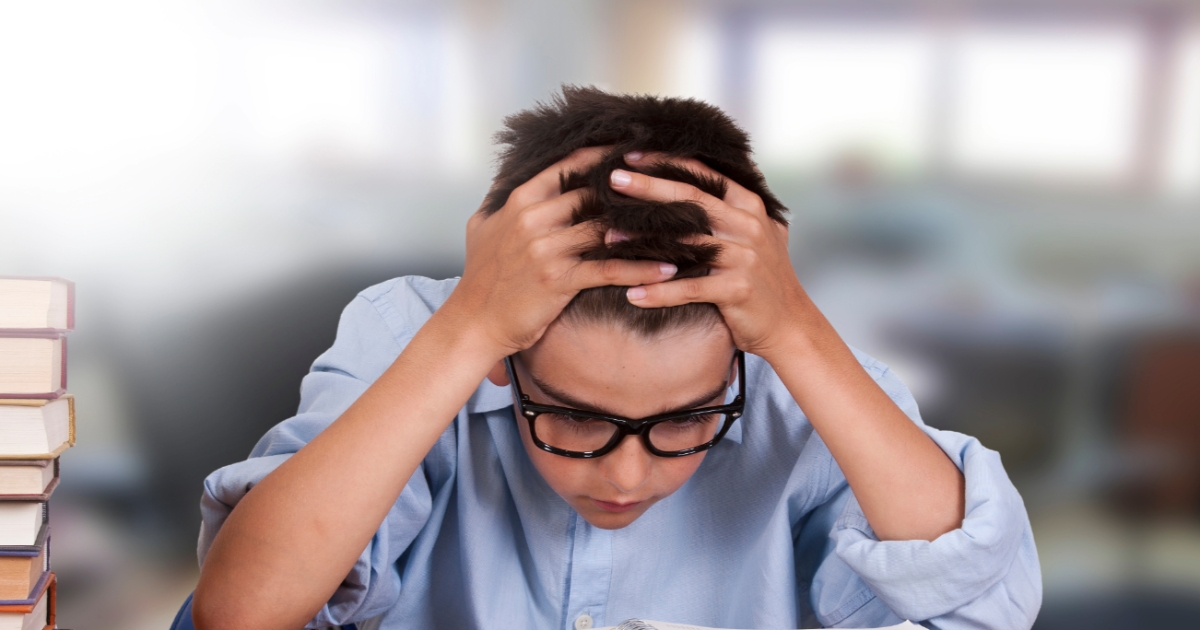The childhood stress epidemic is a growing concern. More children than ever are dealing with anxiety, burnout, and feelings of being overwhelmed. If you feel like the kids in your life are under more pressure than you were at their age, you’re not imagining it. The world has changed significantly, and today’s children are navigating challenges like social media and academic demands that didn’t exist a generation ago.
But why is it happening? And more importantly, what can we do about it? Let’s break it down.
Social Media and the Anxiety Spiral
Social media plays an enormous role in the childhood stress epidemic. While it connects people in remarkable ways, it also comes with hidden challenges for kids, who are often still figuring out their self-worth and identity. Platforms like Instagram, TikTok, and Snapchat encourage constant comparisons, as kids scroll through images of perfect vacations, model-like appearances, and seemingly happy, successful peers.
The truth is, what children see on social media isn’t reality. Most posts are curated and filtered to show the highlights of someone’s life. But for a child or teenager, it’s hard to remember that when all they see is what they think they lack. This creates:
- Body image issues: Filters and editing tools give young users unrealistic expectations about how they should look.
- FOMO (Fear of Missing Out): Seeing a stream of parties or gatherings they weren’t invited to can leave kids feeling excluded or unworthy.
- Constant pressure: Social media feeds never stop. Children feel like they have to stay connected 24/7 to avoid falling behind.
Over time, this spiral leads to growing anxiety, low self-esteem, and even depression. The “like” button, though small, can weigh heavily on a child’s mental health. If their post doesn’t get enough likes or engagement, they may question their value.
Actionable Tips for Managing Social Media Stress
- Set boundaries:
Limit your child’s screen time. Tools like app timers or family tech agreements can make it easier to avoid endless scrolling. - Encourage breaks:
Teach kids to take regular breaks from social media. Use that time for hobbies, exercise, or simply offline relaxation. - Remind them of reality:
Have honest conversations about how social media works. Explain that most posts don’t show the full picture. - Lead by example:
Model healthy social media habits. If kids see you constantly scrolling or stressed about likes, they’ll mirror that behavior.
Academic Pressure Is Higher Than Ever
The pressure to excel academically has skyrocketed in recent years, and kids are being affected more than many adults realize. From standardized testing to competitive college admissions, there’s a growing expectation for children to achieve perfection. Many feel like they can’t afford to make mistakes, which takes a toll on their mental health.
Why has academic pressure intensified?
- Testing culture:
Policies in many schools place a heavy emphasis on tests as the main measure of success. Kids spend hours preparing for exams, often sacrificing sleep and downtime. - Extracurricular overload:
To stand out for college applications or scholarships, children are encouraged to pack their schedules with sports, music lessons, and other activities. While enriching, this often leaves little room for rest. - Parental expectations:
Well-meaning parents sometimes add to the pressure, wanting their children to achieve more than they did. - Fear of the future:
Kids grow up hearing about things like job insecurities and student debt. This plants the belief that their entire future depends on academic success.

How Academic Stress Impacts Children
High academic expectations often lead to burnout. Children struggle with:
- Anxiety over failing
- Exhaustion from late-night study sessions
- Lack of time to play or bond with family
- A fear of not being “enough,” even when they’re doing their best
All of this can create a cycle of stress that feels impossible to escape.
Tips for Reducing Academic Pressure
- Focus on effort, not grades:
Praise your child’s hard work and improvement rather than only celebrating high scores. This shifts the focus from perfection to progress. - Create balance:
Help your child prioritize rest and relaxation. Make it clear that downtime is just as important as studying. - Adjust expectations:
Check in with your goals as a parent. Are you putting too much pressure on your child to meet certain academic standards? If so, adjust them to be more realistic. - Advocate for change:
If the school’s testing policies feel overwhelming, talk to teachers or administrators about ways to reduce long-term stress for students.
How Parents and Educators Can Help
Children need a support system that understands the pressures they face. Parents and educators play a critical role in helping them build resilience and develop coping tools. While we can’t shield kids from every stressor, we can help them manage it better.
What Parents Can Do:
- Practice active listening:
Sometimes, kids just need to vent. Be a safe, non-judgmental person they can talk to when they’re feeling stressed. - Teach stress management techniques:
Simple practices like deep breathing, mindfulness, or even just walking in nature can help children calm their minds. - Lead with empathy:
Stress may show up in ways that are hard to spot, like irritability or withdrawing. Respond with patience and understanding rather than punishment. - Limit overscheduling:
Encourage your child to participate in activities they enjoy, but make sure there’s plenty of time for rest and free play.
What Teachers Can Do:
- Set realistic workloads:
If possible, avoid overwhelming students with excessive homework or assignments. - Foster a supportive environment:
Create a classroom culture where mistakes are viewed as a part of learning. - Teach life skills:
Introduce lessons on time management, emotional regulation, and healthy coping strategies. These are just as important as academic skills.
A Healthier Path Forward
The childhood stress epidemic is a serious problem, but it’s not without solutions. Families, schools, and communities all have a role to play in helping children thrive without feeling crushed by pressure. By implementing small, consistent changes — like limiting social media use, removing unnecessary academic pressure, and encouraging balance — we can start to reverse the trends.
Children deserve a chance to grow, learn, and enjoy their childhood without the constant burden of stress. It starts with us. Together, we can create an environment where kids feel supported, not overwhelmed. Raising a less stressed generation begins with listening, understanding, and taking action. The results will be worth every effort.





